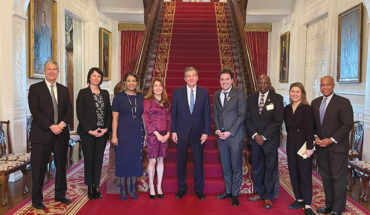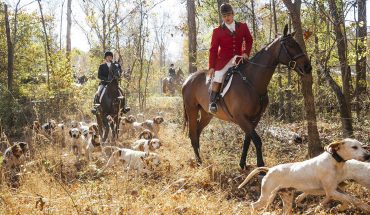by Charles Upchurch
photographs by Shawn Rocco
You’re a tundra swan. Tonight, you will leave your summer nesting grounds in subarctic Canada and begin the southern migration to your winter home. By ancient imprint, guided by moon and stars along the Atlantic Flyway, you voyage more than 2,000 miles through Indian summer skies, bound for Lake Mattamuskeet, Pea Island and other freshwater havens in North Carolina that have given your species refuge for millennia.
 Far below stands a man named Reid Jones, 77. He is your champion and deeply cares for you, just as he cares for the wood duck, mallard, widgeon and teal. He also has traveled thousands of miles, calling men to action across his home state to preserve wild habitats for waterfowl. He is a father, grandfather, native sportsman and hunter who for more than 40 years has helped make North Carolina a national leader in wildlife conservation.
Far below stands a man named Reid Jones, 77. He is your champion and deeply cares for you, just as he cares for the wood duck, mallard, widgeon and teal. He also has traveled thousands of miles, calling men to action across his home state to preserve wild habitats for waterfowl. He is a father, grandfather, native sportsman and hunter who for more than 40 years has helped make North Carolina a national leader in wildlife conservation.
As a boy, growing up in the country near Shelby, Jones was at home in field, wood and wetland. After Jones lost his father at 9 and his mother not two years later, the natural world was a place of solace and kinship. Hunting and fishing became a certain part of an uncertain life.
Early on, Jones realized that game lands needed stewardship. He wanted to protect the outdoor environment to which he felt so connected, and hoped never to lose.
In 1968, married, working at Cameron Brown Insurance and raising his own brood in Raleigh, Jones joined the new Ducks Unlimited chapter in town started by Frank Liggett.
An organization of hunters dedicated to preserving wild habitats for nesting waterfowl and winter habitats along the Atlantic Flyway, Ducks has become the world’s largest private wetlands and waterfowl conservation group.
As a member of a family that pioneered the soft drink industry in North Carolina, Jones was able to contribute to the group financially, but he also gave generously of his time, including two consecutive years as a full-time volunteer. Today, the North Carolina chapter is looked upon as a bellwether within Ducks Unlimited, which has become the world’s largest nonprofit dedicated to the conservation of waterfowl habitat. Much of that success can be traced to Reid Jones.
A call to preserve
“It’s the wildness,” says Jones, in explanation of something that, for him, requires none. “Anything we can do for the ducks is good for all wild creatures – otter, beaver, muskrat, egrets, heron – even fish.”  Though no longer an active hunter, Jones still fishes on occasion, and still works to preserve natural habitats.
Though no longer an active hunter, Jones still fishes on occasion, and still works to preserve natural habitats.
Last year alone, Ducks raised more than $50 million to preserve and protect waterfowl breeding grounds in Canada and the Upper Midwest, where each spring more than 75 percent of the ducks, geese and swans that migrate to North Carolina hatch.
When Jones joined, there were 10 chapters in the state. In 1976, he met Don Manley, a young wildlife biologist working for DU. Together they hit the road to recruit members, stopping in small town diners and hardware stores, seeking out local duck hunters. When they left, there was a new chapter in their rear view mirror – a total of 65 in two years – and more than 40,000 miles behind them. There are now 125 chapters in North Carolina.
“North Carolina is lucky, because not every state has a Reid Jones,” says Manley, now the group’s longest-tenured employee and director of fundraising and volunteer relations for the group’s seven-state southeast region. “Not only did he have a passion for the ducks, but he’s one of those down-to-earth guys you can trust – when Reid tells you he’s going to do something, it gets done today.”
Jones has served as Raleigh chairman, state chairman and DU National Trustee. In 2005 he became a member of the first class inducted into the North Carolina Ducks Unlimited Hall of Fame. This spring, in the year of the group’s 75th anniversary, Jones was honored for making North Carolina a perennial leader in membership, fundraising and habitat preservation. He was also recognized creating programs that have been adapted by the group in all 50 states, helping to boost donations, and expand conservation efforts across North America.
‘It gets in your blood’
Kak-ada-kak-ada-kak…so authentic is the “feed call” Jones demonstrates during a lunch with his son, Reid Jones, Jr. , a storm of dabblers might just wing through the restaurant.
As father and son reminisce, scenes from a sporting life emerge: The double-barrel L.C. Smith 12-gauge that Reid Sr. took his first wood duck with in 1948, in the swamps where Wakefield Plantation now stands. The old lease on six miles of shorefront farmland at Lake Gaston. Elsa, the golden retriever pup brought home from Wyoming, and Diddle and Lil and all the goldens since. The years on Currituck Sound and Mattamuskeet – maybe the best duck hunting on earth.
“When I was 6 or 7, my dad would carry me on his back through the marsh,” said the younger Jones, now 53 and a principal at Mikels & Jones Properties in Raleigh. “Being out there when the sun comes up, being with the men after the hunt, having their bourbon, cooking steaks and listening to the stories – it gets in your blood.”
There was always an October hunt. During his days at UNC-Chapel Hill, Reid Jr. would recruit a fraternity brother to go along, camouflaging blinds with brush in ritual preparation for a day afield that began in the sometimes-frozen dark. He still has the Belgian-made Browning shotguns he first carried as a teenager, but his sons Reidy and Ruffin hunt with those now. These days, Dad prefers his Italian-made Benelli.
Reid Jones Jr., like his father before him, is handing down more than a love of duck hunting. It is a legacy of service and stewardship. Reid Jr. served as the Raleigh area Ducks Unlimited chairman in 1990. Last year, his son Ruffin was chairman of the nation’s oldest active high school chapter at Broughton High School. The student chapter raised $11,000 in 2011 to help preserve and protect fragile natural habitats.
That’s enough to make a difference, and make a grandfather very proud.
ABOUT DUCKS UNLIMITED
Since 1937, Ducks Unlimited has conserved more than 12 million acres of waterfowl and wildlife habitat, which is more than any other conservation organization. More than 80 percent of its financial donations go directly to projects in the field, according to its federal tax form.
This year, the North Carolina chapter of the organization received a $125,000 grant from the North Carolina Attorney General’s Office for restoration of wetlands on the Butner-Falls of Neuse Game Land, a 40,899-acre tract surrounding Falls Lake reservoir.
Statewide, the crown jewel for the group has been SoundCARE, founded by regional vice president Lloyd Goode of Raleigh. In partnership with the N.C .Wildlife Resources Commission, U.S. Fish and Wildlife Service and the North American Wetlands Conservation Council, SoundCARE raised $28.5 million to conserve 35,000 acres in North Carolina and 47,000 acres in Canada.
The chapter at N.C. State counts more than 800 members and ranks as the top college chapter in the nation, just ahead of East Carolina. Learn more at www.ducks.org. For information on fall duck hunting season in North Carolina, visit www.ncwildlife.org.



